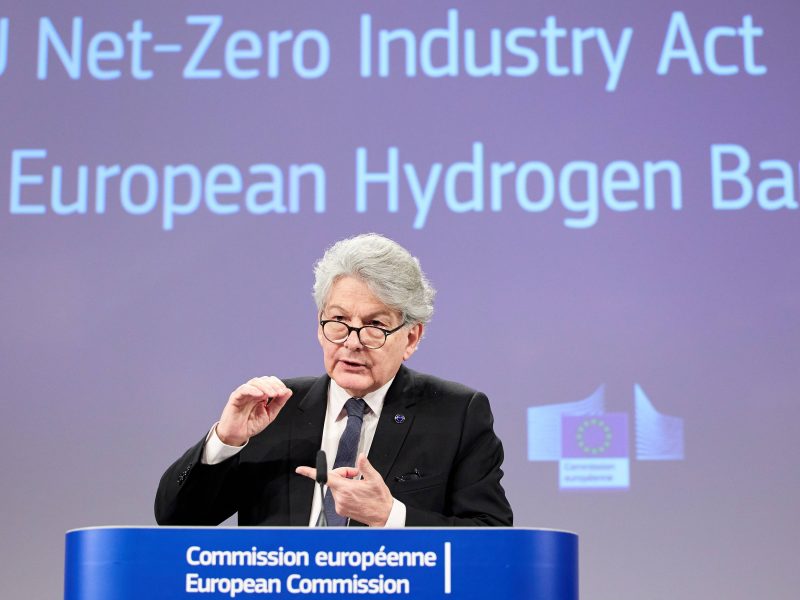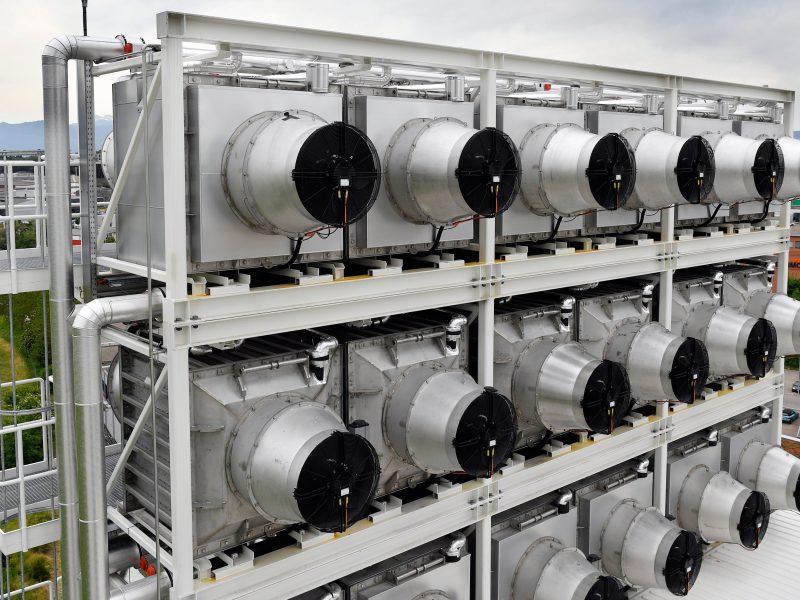
The German Greens have adopted a European Parliament election programme which highlights the need for carbon capture and storage, a historic shift for the party.
Germany’s Green Party, along with most of their European counterparts, has long opposed carbon capture and storage (CCS) as a costly diversion from efforts to reduce CO2 emissions that are causing global warming.
The party’s reluctance to shift its position has long hampered the adoption of a coherent strategy on carbon removals and CCS, as demanded by successive reports from the Intergovernmental Panel on Climate Change (IPCC).
The party is now changing that stance and campaigning for the EU elections in 2024 on a platform open to the technology. In hard-to-abate sectors like cement, “we want to utilise technological opportunities and capture, store and, if necessary, use CO2 directly during production,” reads the Greens’ new party programme.
“We strive to create a standardised regulatory framework across Europe and to develop an integrated European infrastructure, including common European CO2 storage facilities,” the programme adds.
For the German greens, that amounts to a momentous shift.
Ottmar Edenhofer, director of the Potsdam Institute of Climate Research and IPCC author, likened their refusal to consider carbon capture to the German conservatives’ reluctance to take up debt.
Robert Habeck, Germany’s Green economy and climate action minister, has championed the idea of shipping German CO2 to Norway – usually to be rebuked by his party.
The shift should also be welcome news for Brussels, where the European Commission is working on an “industrial carbon management” plan slated for publication in the coming weeks.
Previous attempts to launch such a European strategy have failed due to a lack high-level resistance in the European Commission on CCS, sources say.
The change of heart among German Greens could now reverse this. In their programme, the party stresses the need to introduce “negative emission targets” at the national and EU levels in order to reduce the amount of CO2 in the atmosphere and meet UN climate targets.
Scenarios in the UN’s flagship IPCC report assume carbon removal technologies are deployed on time to stay on track with the objective of keeping global warming below 1.5°C.
[Edited by Alice Taylor and Frédéric Simon]









